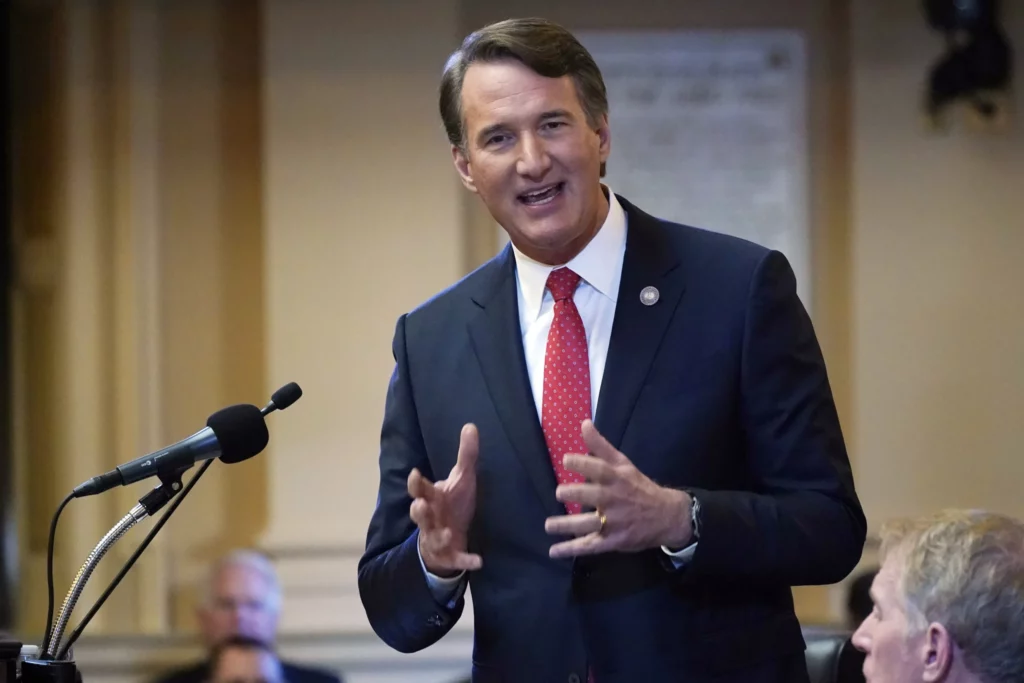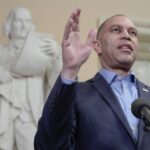
ALEXANDRIA, Virginia — A federal judge on Thursday appeared poised to rule against Republican Gov. Glenn Youngkin‘s (R-VA) initiative to purge ineligible voters from state voter rolls, hinting that she may restore 1,600 voters that were removed over the past three months.
The case centers on whether Youngkin’s Aug. 7 executive order, which calls for daily voter roll removals based on Department of Motor Vehicles data, counts as an individualized process rather than a broad, systematic one. This distinction is key because the National Voter Registration Act requires a 90-day “quiet period” before elections, during which systematic voter roll purges are not allowed, according to attorneys for the Department of Justice and individual plaintiffs.

Youngkin’s order has resulted in the removal of more than 1,600 voters so far, and the plaintiffs say even one mistake made in removing a voter from the state’s rolls is enough to deem the process a systematic one. Conversely, Virginia argues that if even one noncitizen is able to vote in the election, the damage by “canceling out” another legal vote is just as severe.
U.S. District Judge Patricia Giles, an appointee of President Joe Biden, told all parties involved in the case that she is strictly focused on deciding the Justice Department’s allegation that the state violated the 90-day rule under the NVRA.
“I don’t want to create an issue that I don’t need to create,” said Giles, who appeared to have fewer questions of the DOJ while at times casting a more skeptical eye at the arguments coming from the state defendants.
Virginia argued that it can conduct daily voter roll updates, even during the 90-day quiet period before elections, based on its interpretation of a 2006 state law and Youngkin’s executive order. Lawyers for the state said these updates, using data from the DMV to identify noncitizens, are necessary to keep only eligible voters on the rolls and that the plaintiffs and the DOJ waited too long to file a lawsuit.
“We are only 10 days from the 2024 presidential election,” Charles Cooper, an attorney for the state, told Giles, stressing that precluding the state from continuing its daily updates to the rolls could have a palpable impact on election integrity.
“I don’t take that lightly,” Giles said.
The state contends the executive order is nothing more than a form of routine maintenance, not a large-scale purge of voters, which state attorneys argue would otherwise violate the federal rule preventing systematic voter removals within 90 days of a federal election.
“It starts with a basic premise that when someone walks into one of our DMV’s and self-identifies as a noncitizen, and then they end up on the voter rolls, either purposely or by accident, that we go through a process individualized, not systematic, an individualized process based on that person’s self-identification as a noncitizen, to give them 14 days to affirm they are a citizen and if they don’t, they come off the voter rolls,” Youngkin previously told Fox News about how the executive order functions.
CLICK HERE TO READ MORE FROM THE WASHINGTON EXAMINER
But toward the end of the hearing on Thursday, plaintiffs’ attorneys stood up and told Giles that they had a thumb drive with data that they said revealed at least 75 additional people were denied access to registering to vote thanks to the governor’s Aug. 7 order, arguing that that evidence flys in the face of the defense’s argument that the state’s same-day voter registration access would solve any possible mistakes.
The hearing lasted from 9 a.m. to just before 5 p.m. on Thursday, and Giles is poised to issue a ruling on the request to enjoin Youngkin’s efforts sometime on Friday.






